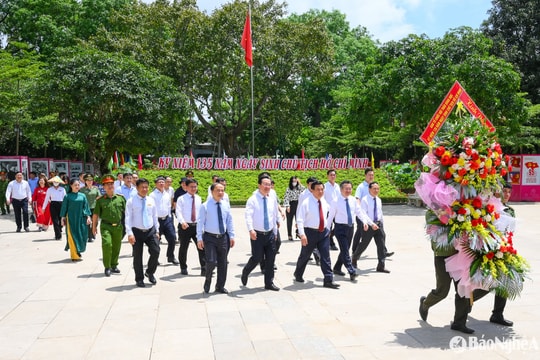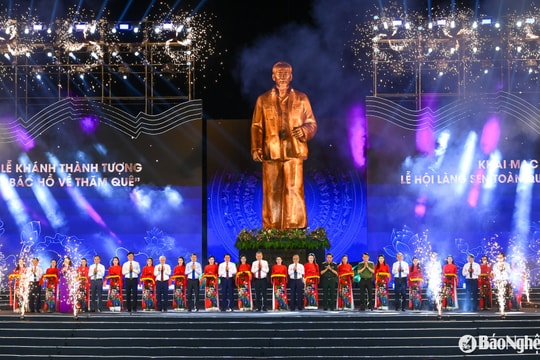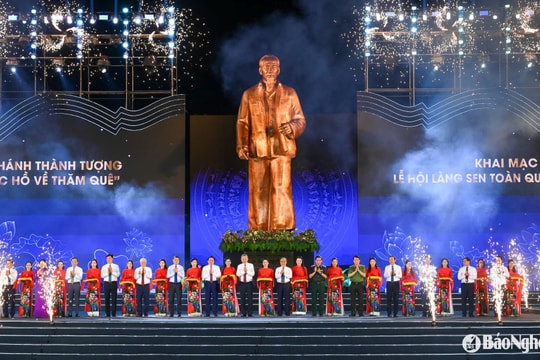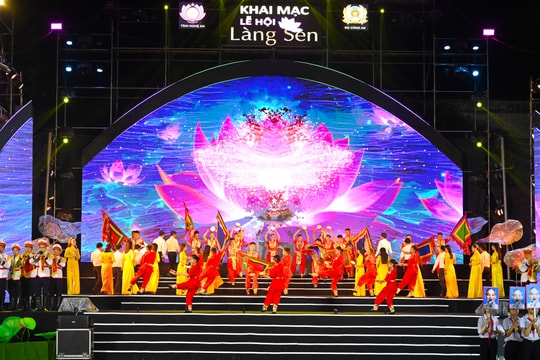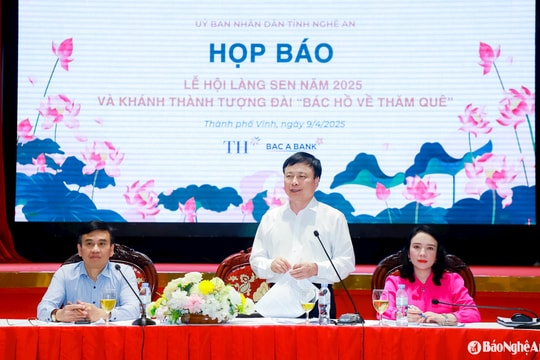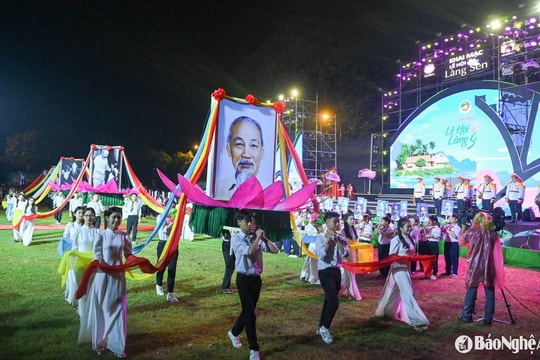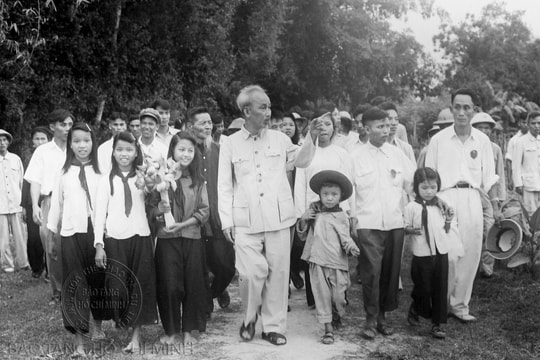Uncle Ho with ethnic minorities in Nghe An
(Baonghean.vn) - In his great revolutionary career, President Ho Chi Minh always had affection and concern for ethnic minorities. In his thoughts, "Kinh or Tho, Muong or Man, Gia Rai or Ede, Xe Dang or Ba Na and other ethnic minorities, are all descendants of Vietnam, are all blood brothers. We live and die together, share happiness and suffering together, help each other in hunger and fullness...". For ethnic minorities in his homeland Nghe An, he also had very special feelings...
60 years ago, in December 1961, during his second visit to his hometown, which was also his last, after visiting Vinh town, his hometown in Kim Lien (Nam Dan), Vinh Thanh Cooperative (Yen Thanh), Dong Hieu Farm,... President Ho Chi Minh showed his concern for ethnic minorities when he visited Nghe An Mountainous Pedagogical School. Here, although the time was very short, he devoted all his love to the school's pupils and students with the most caring greetings. He said:“Seeing you happy and healthy, I am very pleased. I visited a bedroom, it was quite clean. Is it like that every day? Or do you clean it after hearing that I am coming?”
- How many ethnic groups are there here? Why do you all dress like Kinh people?
- Where are the Tho children? Why are they dressed like Kinh people?
- Where are the Thai kids?
- Where are Thanh's children?
- Where are the Tay Muoi children?
- Where are the Tay Hay children? Is there only one child? Why is there no girl? Next time there must be a girl.
- Where are the Dan Lai children?
- Where are the Lao children?
- Do you understand each other?
- Can you guys talk to each other? What language do you speak to each other?...”.
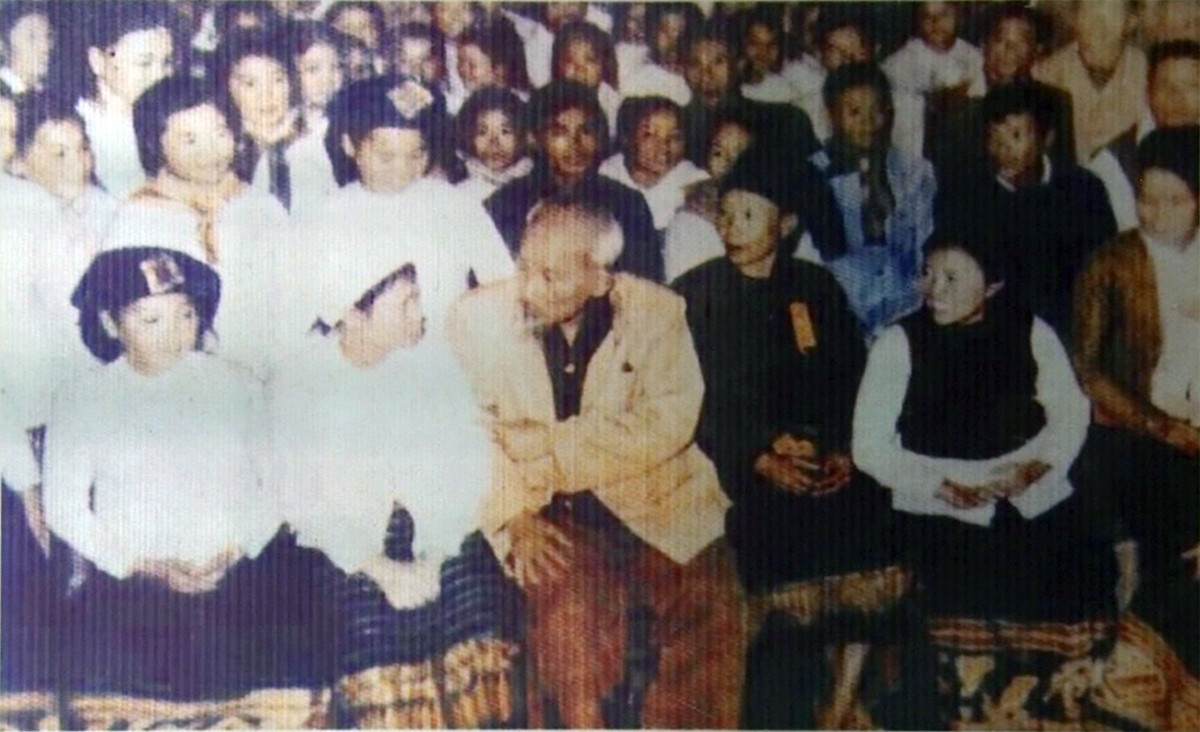 |
| Uncle Ho visited and talked with staff and students of Nghe An Mountainous Pedagogical School on the afternoon of December 9, 1961. Photo: Archive |
Talking to ethnic minority students, President Ho Chi Minh talked about the spirit of solidarity in the big family of Vietnamese ethnic groups:“In the past, the Westerners and feudal kings made the ethnic groups hate each other, the Muong people hated the Kinh people. Now all ethnic groups are brothers. The ethnic group that is larger, has more people, and is more progressive must help the other ethnic groups so that they can all progress equally, and all unite like brothers in one family...”.Besides asking about the study situation, solidarity and mutual understanding among ethnic minority students, Uncle Ho also advised that the purpose of studying is to progress and to build socialism, with very simple words: Socialism is prosperity, solidarity, and happiness. To build socialism, one must study, save, and increase production... In particular, he advised"To repay the favor, you don't have to study here, but have to return to help your fellow countrymen."
One of the witnesses who met Uncle Ho at the meeting of students of the Mountainous Pedagogical School that year, Ms. Lo Thi Nhan, is now a retired teacher in Tam Thai commune (Tuong Duong). Ms. Nhan said:“The time we met Uncle Ho was very short, but it left us teachers and students with profound lessons about the spirit of solidarity, striving to overcome difficulties, and our responsibility to the community... Uncle Ho's teachings have followed us throughout our lives and have become the motto of life for generations of cadres and people of ethnic minorities in our province.”
His advice and encouragement to all students of the Mountainous Pedagogical School 60 years ago became a great source of encouragement, not only for the unit and the generation of students of the school who met Uncle Ho at that time, but also an event that went down in the history of the province, creating more strength and motivation for the people in the province in general and the ethnic minorities in the mountainous areas in particular to compete and strive to fulfill their tasks in each stage of development of the country and the province. This also further proves that, anywhere and at any time, he always cared about and called for solidarity among ethnic groups, between the Kinh and ethnic minorities, between ethnic minorities with each other to realize the aspiration for independence and freedom for the Fatherland and happiness for the People.
In addition to welcoming Uncle Ho to visit and talk at the Mountainous Pedagogical School, the ethnic minority community of Nghe An province was also very happy and proud because many outstanding individuals in various fields were praised by Uncle Ho and met him. In particular, in 1965, after completing the first 5-year cultural supplementary plan 1 year ahead of schedule, the cadres and people of Que Phong mountainous district received a letter of praise from Uncle Ho. The content of the letter read:“I am very pleased to commend the people and cadres of all ethnic groups in the district for their efforts and successful completion of the 5-year plan for cultural education 1 year ahead of schedule. I hope that the people and cadres of the district will strive to compete and achieve many achievements in increasing production, be ready to fight and continue to study and make further progress, contributing worthily to the cause of fighting against the US and saving the country of all our people. I cordially send my regards to the elderly, the youth and children... Warm greetings and victory!”
With the consistent ideology: “Vietnam is one, the Vietnamese people are one”, President Ho Chi Minh persistently built the great national unity bloc on the basis of equality, eliminated ethnic prejudices, and took care of all aspects so that the mountainous areas could catch up with the lowlands. Affirming the role of Vietnamese ethnic minorities in the journey of fighting for a peaceful, independent, and unified Vietnam, he emphasized:“Thanks to the solidarity and common struggle of all ethnic groups, Vietnam today is independent, ethnic minorities are equal to the Vietnamese people, all are like brothers in one family, there is no longer any division of race or language. In the past, ethnic groups had to unite to gain independence, now to maintain independence they have to unite even more.”This is also one of his ideological contents in national solidarity; it is the guideline for the Party Central Committee and the Government in building and directing the implementation of policies for ethnic minorities, especially in the current cause of innovation and international integration.
Implementing the teachings of President Ho Chi Minh, in recent years, the Provincial Party Committee, People's Council, People's Committee, Fatherland Front Committee of Nghe An province together with branches and local authorities at all levels have paid much attention to developing mountainous areas - where ethnic minorities live. Western Nghe An is considered one of the three key economic regions of the province, with many policies on investment in electricity infrastructure, roads, schools, stations and social security policies contributing to the comprehensive development of ethnic minority and mountainous areas, gradually narrowing the gap with the lowlands...

